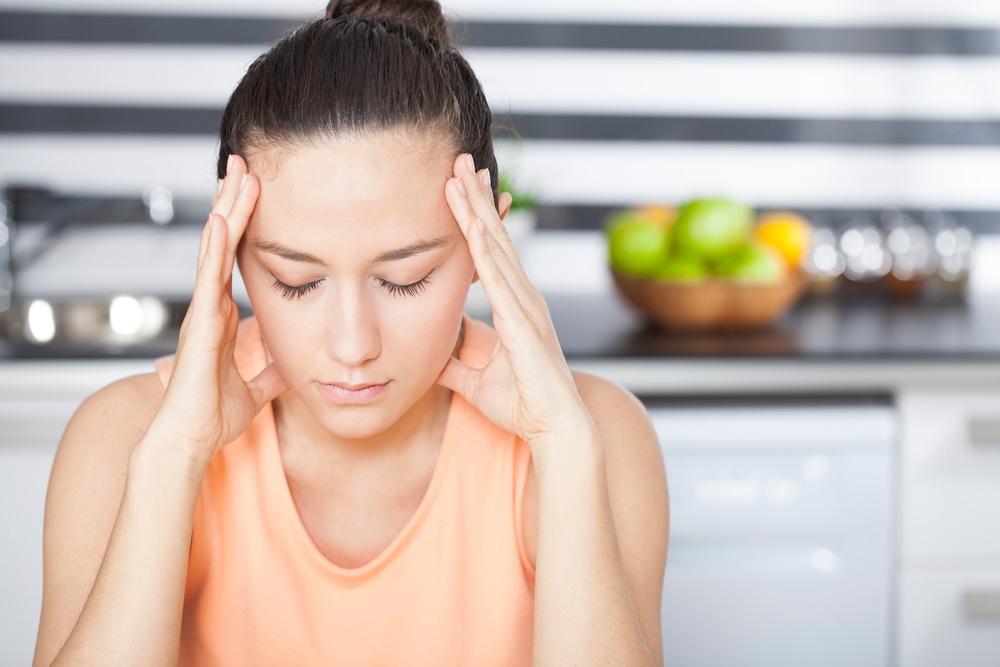
How often have you heard someone say, “I forgot to eat today?” It might seem like a silly thing to forget to eat, but it happens more often than you think. Of course, skipping meals unintentionally is quite different from intended fasting, but the end result is the same.
Here’s why going without food is not the best idea for migraine patients.
What Happens to Your Body During Fasting
Whether your fast is intentionally-motivated or accidental, here’s what happens to your body when you don’t give it regular meals:
-
Your blood glucose levels fluctuate
Whether you’re fasting or not, you still need energy. The main source of this energy is glucose, which derives from carbohydrates such as grain, dairy products, beans, fruits, and certain vegetables. The glucose is stored in your liver and muscles, and released into the bloodstream when your body needs energy.
During fasting, however, the process changes. After about 8 hours have passed, your glucose reserves are depleted and your body transitions into fasting mode, which is a state called gluconeogenesis. In this state, you burn a higher number of calories, and if no glucose is coming in your body creates its own from your fat deposits. This might sound like a great way to lose weight, but it’s also a sure-fire recipe for a migraine.
At some point, your body runs out of fat energy sources and begins burning muscle tissue for energy. These changes to your blood glucose levels can alter the pain receptors in your brain, leading to a fasting headache. -
Dehydration sets in
In most instances, fasting allows you to drink as much water as you need, but some religious fasts avoid doing so. Also, you may not be able to intake as much fluid as you need purely from water, and since you aren’t eating there’s no help coming from your food. This can cause dehydration to set in, which is a primary trigger for migraine headache episodes. -
Your muscles tighten up
Few people can fast without becoming hungry, and hunger causes the muscles to tighten up. This can result in placing stress on the muscles of the neck, jaw, and shoulders, which store the tension that causes cervicogenic headaches. This is one of the principles on which BOTOX® treatment for migraines is founded, because the injections paralyze the muscles, relieving the tension and hopefully reducing the frequency of headaches. Muscle tension is also a predictor of insomnia, which is another common trigger for migraine headaches. -
Hunger causes lack of sleep
It’s a well-known fact that a full stomach makes us drowsy and ready for sleep, but what’s less well known is that the opposite also applies. People who go to bed hungry do eventually fall asleep, but it’s much harder to do so. In turn, the lack of sleep causes increased appetite, which is why getting insufficient daily rest is linked to weight gain.
When you’re fasting for a period of time, it could take you longer to fall asleep and result in an imbalance of leptin and ghrelin, the two hormones that comprise your body’s weight homeostasis mechanism. This makes you more hungry, which makes sleeping even more difficult, and lack of sleep is a common migraine trigger.
Some recent reports also suggest fasting stimulates the regeneration of stem cells and red blood count, but at this point there’s no evidence to suggest this has any effect--beneficial or otherwise--on migraine patients.
Symptoms of a Fasting Headache
A fasting headache usually makes itself felt with a mild to moderate intensity. It develops at the front of your head and is non-throbbing, feeling more like a tension headache than a migraine. For non-migraine sufferers, this might be all they experience, but for a migraineur it’s entirely possible you will develop a full-blown attack.
Signs and symptoms of this type of headache include a dull, aching head pain, a sensation of tightness or pressure across the forehead, the sides and back of the head, and tenderness of the scalp, neck and shoulder muscles.
These headaches aren’t usually linked with visual disturbances, nausea, and vomiting. Physical activity aggravates the pain, but it doesn’t make the headache worse. Patients often also experience increased sensitivity to light or sound during a headache of this sort.
Treating Migraine Headaches Caused by Fasting
Your best bet for preventing this type of migraine attack is obviously to avoid skipping meals. In the event that it happens unexpectedly, such as if you’re booked on a delayed flight or stuck in a long meeting, try to raise the levels of your blood glucose slightly to prevent hypoglycemia from setting in. You can usually do this by drinking a cup of tea or coffee containing milk and sugar, eating a small quantity of carbohydrates, or even sucking on a tiny sachet of glucose.
If you have medical or religious reasons for fasting, there are steps you can take to help reduce your risk of developing a migraine during the fast:
- Increase your water intake to combat the absence of “hydrative” foods. Make sure you have a water supply with you at all times. Train yourself to take four sips at least every hour, to reduce the chances of forgetting. Since coffee, tea and alcohol all help to cause dehydration, removing these from your diet could offer benefits you haven’t even thought of.
- Avoid taking medications unless they are formulated for use without food. Take over-the-counter medicines such as acetaminophen that are safe for use on an empty stomach, so you don’t end up trading one problem for another.
- Work to reduce your stress levels to combat muscle tension and sleeping difficulties. Use meditation apps or recordings to help you relax. Calm is a new app with soothing bedtime stories for adults that can have you nodding off in no time.
Fasting can definitely cause migraines, but with the right precautions in place, the health benefits might outweigh the risks in your particular case.
If your doctor has suggested fasting or you absolutely must practice it for religious reasons, try to prepare yourself well a week ahead of starting the fast. Follow these steps for the duration, and you can minimize your chance of an unpleasant experience.



